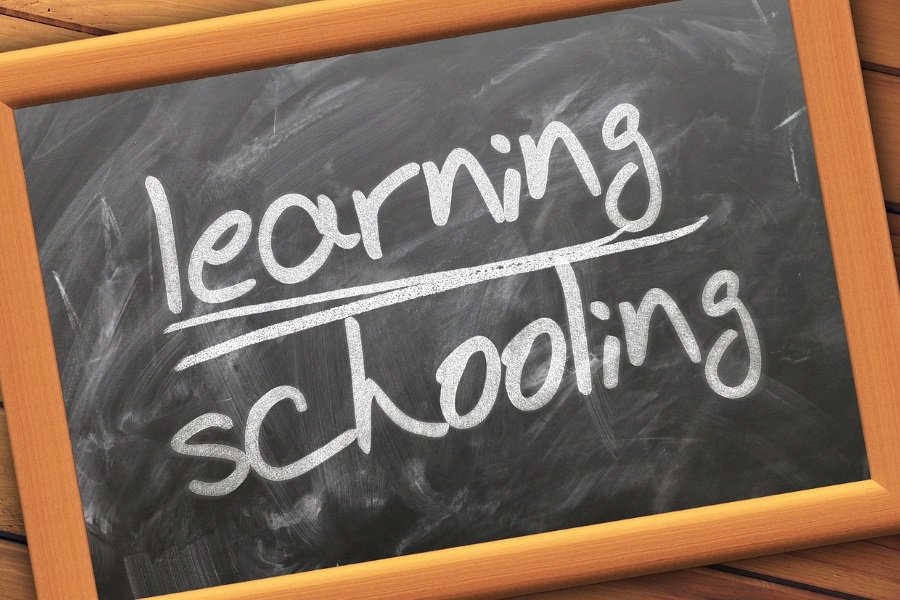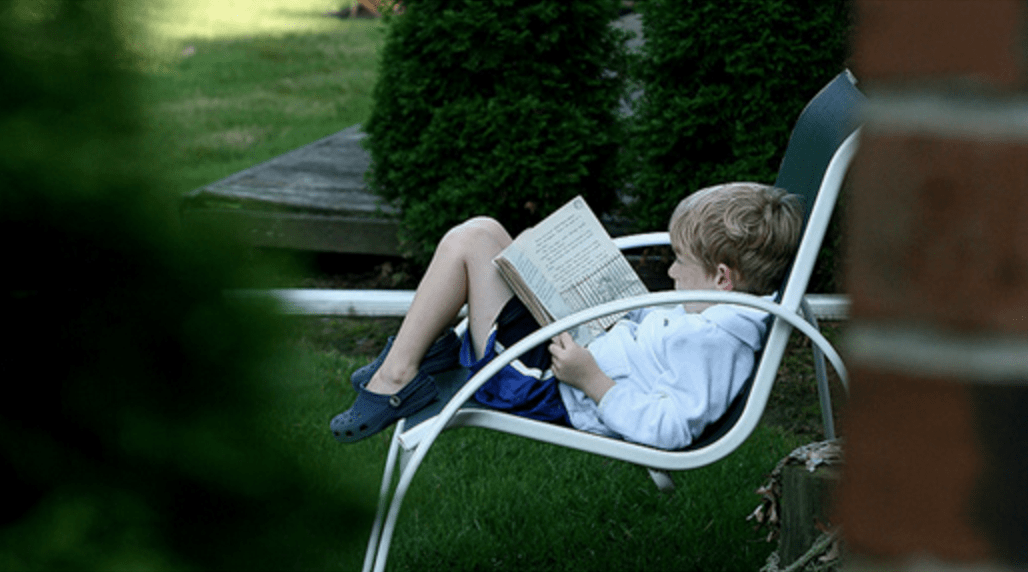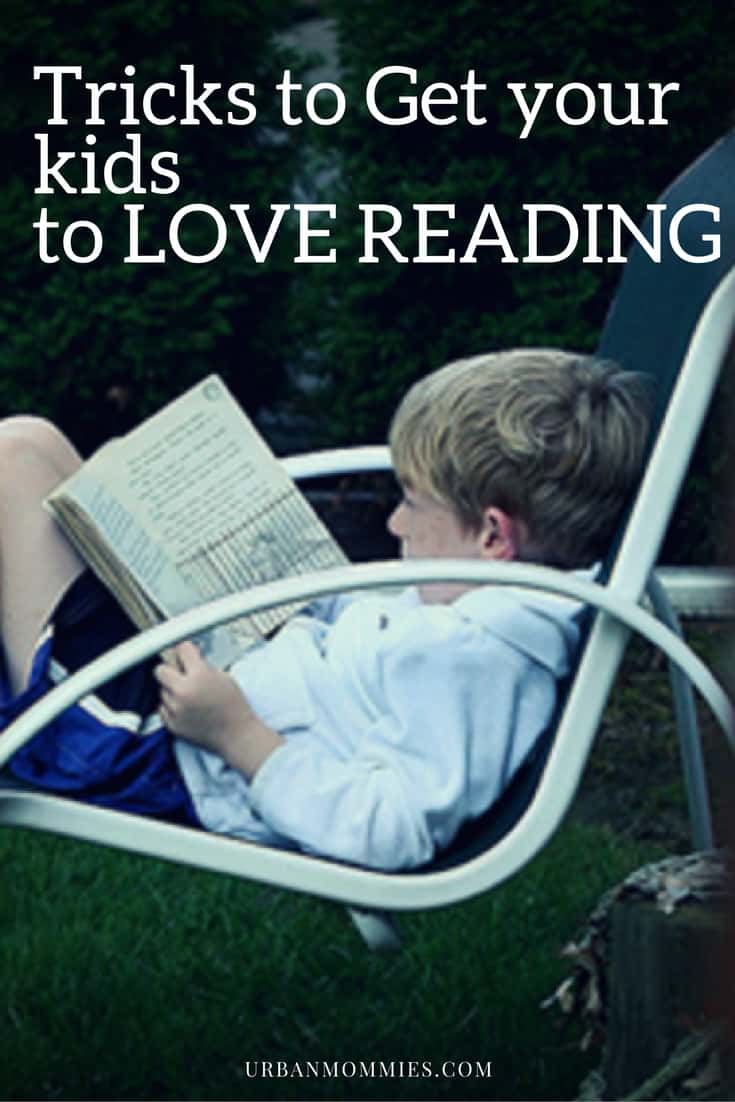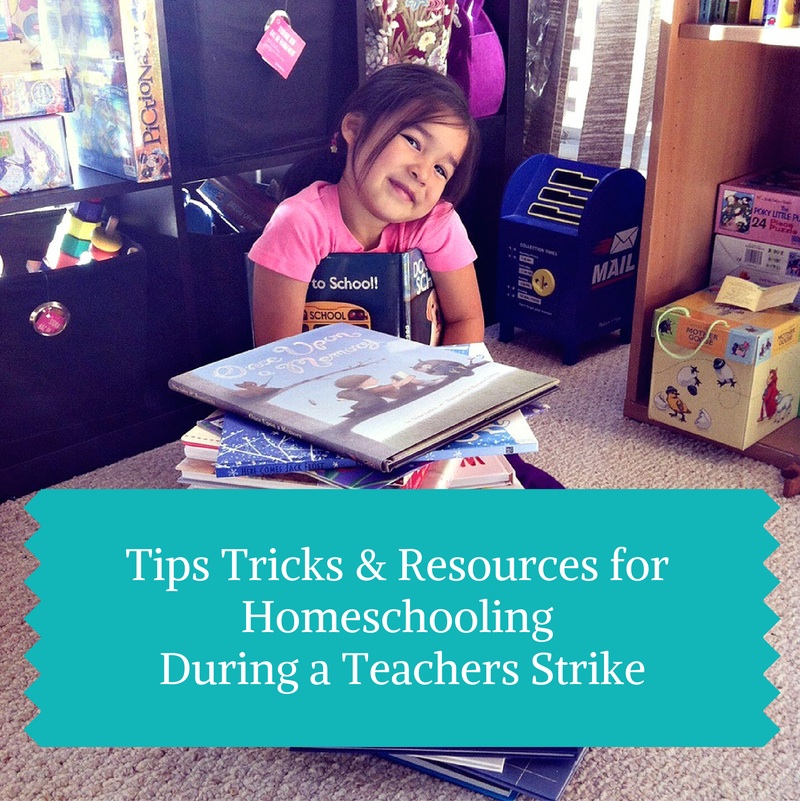If feels like we’ve already had 4 back to schools this year alone. Homeschooling during pandemics is tough, and trying to keep the kids on track is almost impossible. (Never thought I’d write that sentence!!) Here are some back to school (again) iPad apps for grade school kids can help get organized. Breathe…. With lessons becoming more fun and interactive, kids may find them easier and more organized than the traditional modes of learning.
The school library, the one period of the day or week when you didn’t have to worry about “work”, because being in the library doesn’t feel like “work” because you’re surrounded by books. School libraries full of books can instill a love of travel. They can teach about social injustice. You can learn about exciting people who live amazing lives.
Dyslexia can be described as a learning disability which prevents a person from reading, writing, spelling and even speaking sometimes. It is an impairment that is easy to find in children and it can last throughout the person’s life. The categories of this disability range from mild to severe; the earlier it is treated in a child, the better the results that are obtained. The condition is caused by the brain’s inability to translate or convert images or sensory impulses received from the eyes or ears into useful understandable information or language.
I’ll never forget traveling from Rome to Toronto in executive class with a one year-old who didn’t sleep a wink. (I’m quite certain the airline had to appease many of our fellow travelers!) Every parent has a ‘bag of tricks’ and we’d love for you to add your own ideas to our 15 ways to entertain kids on an airplane. Having their full attention for so long is a great way to bond and can reveal amazing teaching moments. Even looking at the maps in the airline magazine is an opportunity!
Convincing your kids to start enjoying reading books is an extremely important thing to do as a parent. Sometime in the future, it will be worth the investment of time and energy. Reading is learned in school however most kids associate this endeavor with something that it work-related, and not with something done for pleasure. Consequently, their desire to read is lost; and that’s exactly what should entice them – the interest and curiosity to see what books have to offer.

1. Read books to your kids out loud
One of the most productive and efficient ways of encouraging kids to start loving books is to read them stories out loud. The sooner you start the better. Make reading a special time spent together on a daily or weekly basis, and share the pleasures of unfolding the mysteries of a good story. A well-written book for kids can be an incredible delight, and with a bit of luck you might even have a bookworm child.
2. Allow kids to choose
Convince your kids to start reading by offering them books they can understand. This way, if they enjoy it they will ask for another one. It’s important to allow toddlers to choose; this creates excitement and motivation. Comics, vampires sagas, sports books are all excellent choices. And since technology prevails, allow them to use an e-book or tablet to read. Colorful images help boost the experience and thus make them enjoy the story a whole lot more.
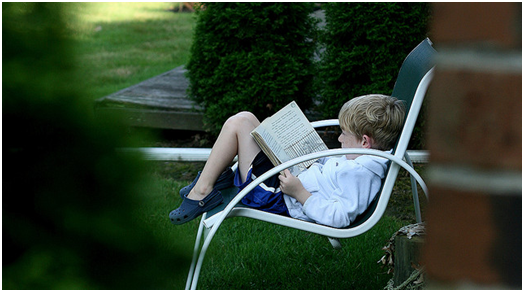 3. Set up a book nook
3. Set up a book nook
Have you ever thought of setting up a book nook for your child? Organize it properly to entice the senses of your little one. Colorful cushions placed on a comfortable sofa with underneath open shelves for book storage is an excellent idea. Use your imagination with these storage spaces and fill it with new books weekly. Don’t forget to include proper lighting; it would be great if you could arrange the book nook by a window.
4. Be a role model
When they’re little, kids like to imitate their parents in their daily chores. If your child sees that you prefer to read a good book before bedtime rather than watch TV, they will become curious. Have the patience to answer all their questions and you might convince them that reading is fun and interesting. Encourage them to choose a book and start reading, too. Make this activity a 1-hour reading session before bedtime, and in a few months the results will be amazing.
5. Make reading fun
Don’t force your kids to read whole books, and start slow. Begin with short stories, use book charts to explain ideas or paragraphs they haven’t understood in the first place, and have enough patience to explain words and phrases that seem challenging to grasp. Use post-its for challenging words and stick them to the fridge; this way your child will also learn new words daily.
 6. Use technology to draw attention
6. Use technology to draw attention
Today’s kids are part of the new generation. They’re not used to actual books; their school notebooks are either a tablet or a laptop, and as soon as they get home, they see parents using some sort of smart device too. Rather than ban technology, you should embrace it. Kindles, nooks and other ebooks are great devices. Allow children to use them to read stories and they might develop a passion for reading as an activity. As they grow older, they might even end up appreciating real books too.
There are numerous other tricks parents can use to convince their kids to read. It’s all about making this activity seem fun and engaging. Don’t force a child to read a book because he will grow up thinking you’re punishing him for something. Make this whole endeavor seem fun; the safest way to do this is to select great books and stories. Start reading out loud and really dive into the subject. A cool trick to preserve the engagement is to stop reading right when things get interesting. This way, your toddler will want to know more. He will be curious and he will impatiently wait another day for you to finish the story, and start a new one.
 What will happen when you mix a liquid with a solid? Hmmmm. Not only will this little non-Newtonian fluid experiment to teach a bunch of scientific principles, but it will keep the kids busy for hours and clean up is easy if you can throw them and your utensils in the shower!
What will happen when you mix a liquid with a solid? Hmmmm. Not only will this little non-Newtonian fluid experiment to teach a bunch of scientific principles, but it will keep the kids busy for hours and clean up is easy if you can throw them and your utensils in the shower!
You Need:
12 oz Corn starch
Water
Cake Pan
Spoon
Food Colouring (optional)
1. Place cornstarch in cakepan.
2. Add a few drops of water and food colouring to cornstarch until the mixture is very goopy.
3. Pick up the liquid and let it run through your fingers, and then bang it so that it feels solid.
Like quicksand, you have created a ‘non-Newtonian fluid’ that is both a liquid and a solid at the same time!
 It’s that time of year when cherry blossoms pop out and science fair projects are top-of-mind. You might be travelling for March Break and getting questions about volcanic sand or downloading the latest star-gazing app to search for Orion’s belt. (My husband insists that Orion’s jock strap is also part of the constellation, so I’ve taken to handling the kids’ science education myself).
It’s that time of year when cherry blossoms pop out and science fair projects are top-of-mind. You might be travelling for March Break and getting questions about volcanic sand or downloading the latest star-gazing app to search for Orion’s belt. (My husband insists that Orion’s jock strap is also part of the constellation, so I’ve taken to handling the kids’ science education myself).
I’ve always believed that education should happen through entertainment. Setting aside time to ‘study’ science isn’t nearly as fun as incorporating a few lessons into daily activities like baking monkey bread or using vinegar and lemons to scrub the bathtub.
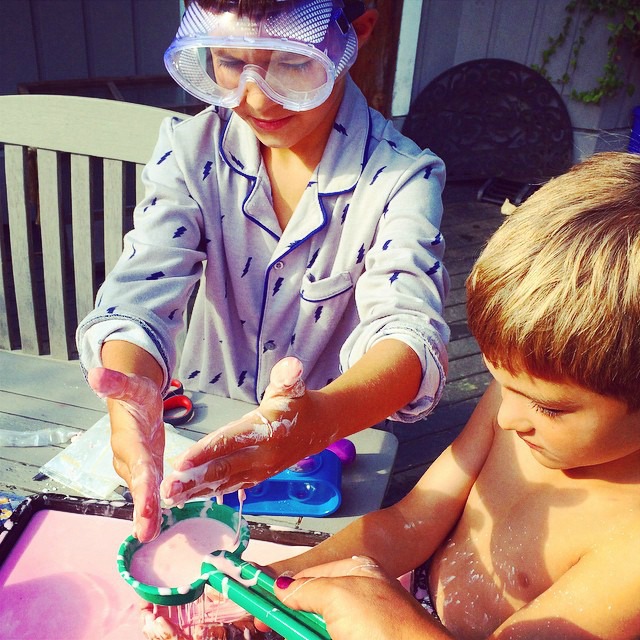 Here is our recipe for non-Newtonian fluid (otherwise know as Magic Mud) and a fun oozing Volcano. But life is busy, and not everyone can go outside with their kids dressed in PJ’s to do messy science experiments.
Here is our recipe for non-Newtonian fluid (otherwise know as Magic Mud) and a fun oozing Volcano. But life is busy, and not everyone can go outside with their kids dressed in PJ’s to do messy science experiments.
This month we’ve been coasting on the science stream with a bit of help from Netflix. (See what I did there? Steam..Ha!) Education is not only about entertainment, but balance, and once you’ve done the hands-on activities, handing your kids a tablet with an equally entertaining educational show can solidify concepts and give you a bit of a break.
In our household we are Netflix fanatics, and I’m not even sure why we have cable. This month I was able to tear myself away from Covert Affairs and House of Cards to stream a few science shows with my boys. In school one is learning about states of matter and the other has been studying astronomy. So I pretty much feel like a rockstar mom for letting them stream Cosmos and Deadliest Volcanoes: Nova from the sofa.

Streaming Science for Little Kids:
1. The Magic School Bus Gains Weight
2. Fetch! with Ruff
3. Animal Mechanicals, Balloon Volcano Island
4. Sid the Science Kid
Streaming Science for Big Kids:

1. Nova: Hunting the Elements
2. Cosmos
3. Deadliest Volcanoes: Nova
4. Let Your Mind Wonder
So whenever you need a wee break from teaching your kids about science, Netflix is a great supplement while you clean up the volcano lava and magic mud. Enjoy!
Disclosure: I am part of the Netflix #StreamTeam and as always all opinions and anecdotes are my own.
We chatted with homeschooling expert Lisa Marie Fletcher, the creator of The Canadian Homeschooler and asked her to share some tips and tricks for parents who want to homeschool during the strike.
 10 Tips and Tricks for Homeschooling During a Teachers Strike:
10 Tips and Tricks for Homeschooling During a Teachers Strike:- Don’t go out and spend a ton of money on curriculum and materials. Try to keep it free/cheap and easy. In case the strike ends earlier than expected, or your child doesn’t learn the way that curriculum works, you don’t want to be out a lot of money.
- Expect that your school day isn’t going to look or feel the same as it is in a school setting. It won’t take as long (you might be done before lunch!), and you can sit on a couch or the floor (or in the tree!).
- Decide if you are going to simply follow your child’s interests and encourage them to learn as much as they can about it, or if you are going to try and follow the expectations of the government learning outcomes for their grade level. BC curriculum packages by grade can be found here.
- If you want to follow the guidelines, don’t stress too much about exact details or trying to figure out what each detail means. Look at the overall topic and use that as a way to start your plan. For example, in Grade 3 science they study plant growth. Plant a bean seed. Watch it and record the changes as it grows.
- Use local assets to your advantage – the library, museums and art galleries, tourist attractions, historical centres, etc. Read a lot. Play outside a lot. Learn together.
- Daniel Roizman of Hiyu had a few great suggestion for parents – Ensure you learn how to tether your laptops to your phones so they can work and homeschool from anywhere. Kids can get extra focus while camping or being on the beach.
- Have the kids watch a movie, then write a report on it and do a bit of research before too.
- Cooking – plan dinner. Have your child pick a theme (mexican, bbq, etc.), research recipes, make a list of ingredients, go shop and then prepare. You can also spread it across a few days (planning day 1, shopping day 2, cook day 3). Include some info on nutrition, organic or gmo and turn it into a science and math project.
- Our publisher was on CTV news with a few more suggestions of ideas for learning while helping the household. A few neat ideas included exploring impressionist and Mondrian-styled art in colours of the kids bedrooms, leaning about chemical reactions and preserving through canning, using a swiffer duster for a cleaning competition, making fairy houses for the garden, and scrapbooking and writing summer vacation memories.
- We also love the stop-motion lego app to inspire creativity and hone film-making skills.
 Considering homeschooling? Here are some great resources to help you get started:
Considering homeschooling? Here are some great resources to help you get started:- The Canadian Homeschooler– A site dedicated to sharing and providing Canadian resources to homeschooling families including Canadian materials, curriculum, products and websites that are relevant and useful to families across the country in their home education journeys.
- Kids Activities Blog– A site created by a part-time homeschooling mom who shares activities that she has both created and collected for her sons education.
- Reading A-Z– Thousands of downloadable, projectable, printable teacher materials, covering all the skills necessary for effective reading instruction.
- Teachers Pay Teachers– On this site, real teachers sell activity sheets and curriculum plans that they have created for a variety of subjects.
- Khan Academy– Provides “a free, world-class education for anyone, anywhere.” Subjects include math, science, arts and humanities, chemistry, computer science and more. For beginner learners to adult education.
- StarFall– A wonderful online tool that can be used on the computer or ipad to teach kids to read with phonics.
- Time For Learning- A student-paced online educational tool covering preschool through high school. Popular as a homeschool curriculum, an afterschool alternative to tutoring, and for summer skill building.
- Super Teacher Worksheets– Printable worksheets for teachers, parents, tutors, and homeschool families.
- Happy Hooligans- A website for arts, crafts and activities for kids from Toddler to Preschooler.
- World As We Knew It- Read your way through Canadian history with Canadian literature.
- World Bank of 1200 high-usage words for spelling.
 Earlier this year, a letter sent by a child to the LEGO toy company went viral. Seven-year-old Charlotte complained about the lack of opportunities for the LEGO girls available at her local toy store. She noticed that the girl figures only visit the beach and the shops, while LEGO boys have interesting jobs and even save lives. LEGO wrote back, adding to the story’s viral appeal and confirming for Charlotte that her questions were worthy of a response.
Earlier this year, a letter sent by a child to the LEGO toy company went viral. Seven-year-old Charlotte complained about the lack of opportunities for the LEGO girls available at her local toy store. She noticed that the girl figures only visit the beach and the shops, while LEGO boys have interesting jobs and even save lives. LEGO wrote back, adding to the story’s viral appeal and confirming for Charlotte that her questions were worthy of a response.
Why are we so pleasantly surprised when a child chooses to speak out? Children have a built-in sense of what’s ‘fair’ or ‘unfair.’ E-mail, Twitter and Facebook provide endless opportunities for any child who can spell to ask questions of companies, organizations and governments.
Here are five ways to your children thinking (and writing) about fairness this summer:
1) Help them feel heard: If a child feels something they see is unfair, encourage them to share more about their feelings. It doesn’t have to be global warming. Charlotte’s concern was simple, personal and right in front of her.
2) Ask them questions: Don’t end the conversation with “Yes, that’s sad.” There are many things to wonder about together. “I wonder who made the decision for this to happen?” or “Who do you think it hurt by this?” are great ways to keep them thinking.
3) Encourage them to write: Some questions you can answer; others you can’t. Help your child figure out who would be best to write to. Is it a toy company, a company that’s polluting the lake, or your municipal government?
4) Praise them for speaking up: Writing to a group of unknown adults can take courage, and your child deserves praise for taking the leap.
5) Broaden their horizons: Share age-appropriate news stories and issues with them. They may develop an interest in helping threatened animals (www.worldwildlife.org) or children who work to make our clothes or chocolate (www.nochildforsale.ca).
You may receive more than you bargained for the next time you announce bedtime, but you’ll certainly be impressed with their arguments!
Disclosure: This article was made possible through a partnership with World Vision Canada. #NoChildForSale
Swimming around in the Westin Calgary pool, we were both happy as clams. My son loves Minecraft (especially computer version) and asked if he could get a new MOD (translated to ‘modification of the original – I think). Personally knowing the student who had told him about add-ons to Minecraft, I was skeptical but decided to be open-minded. Daddy and I would research the MOD to see if it was appropriate.
Pushing me, my son explained that you could get a girlfriend and make ‘it’ do things. Red flag #2. He insisted his friend said there was a Youtube video that would explain it. And he wanted me to watch it NOW.
I looked and there were no age restrictions, so we watched it together.
For ten minutes.
And my heart sank deeper and deeper and I knew that we’d entered tech hell, a place that I may have to go back to school to understand because I can’t be a great parent without a full understanding of that world.
In the video (that was like a gender-biased, sexist train wreck I couldn’t stop watching), I learned that ‘mail-order girlfriends’ emerge from a box shipped to the miner. They do your bidding and their weapons are shoes tossed at the creepers. If you like, you can give them a sword but must take it back promptly. They are tamed with a rose and will do what you tell them once they are in love with you. You can dress them in 16 different outfits and if you draw them to water.. wait for it… they will change into a bikini! (Of which there are many styles as well). Building a dance floor of 5×5 bricks will compel them to dance for you to ensure your happiness. And finally, to break up with these creatures you just have to give them a dead bush. Hopefully the symbolism isn’t evident to my son.
I was silent. I asked my son how he would feel if it was me who got out of the box. He said he wouldn’t like it, but if you marry them with a diamond you can get a baby from inventory and even eat dinner together. At a table in a restaurant.
I explained that he had not done anything wrong, but that this particular MOD divided genders and included harmful thoughts about women. He still begged to get it and promised he’d never treat a girl like that in real life.
So I guess he realizes some of the negatives. But the weaponry, clothing changes and newness is still too enticing. And now I’m petrified.
This video has over 6 million views. Developers such as TheDiamondMinecart make or simply video and explain the workings of these MODS. They are certainly not screened for content. Parents who may think their child is playing ‘Minecraft’ has no idea about the can of worms introduced by coders who want to extend the range of the game.
So much for work. I’ll be looking over his shoulder from now on. And before he can download ANY SIM? He has to learn how to code and build the damn thing himself if he’s still interested. (Hopefully it will take a few years). There was a great article on Babble about teaching kids coding. Spanish can wait. Coding and the reinforcement of gender equality are next on the list. And just because you trust what you read about Minecraft and it’s developers, be careful not to consider all-things-Minecraft as kid-appropriate.
In the meantime? Any advice on how to deal with the family of the 7-year old who hyped the Girlfriend Mod would be much appreciated.
by Jill Amery



